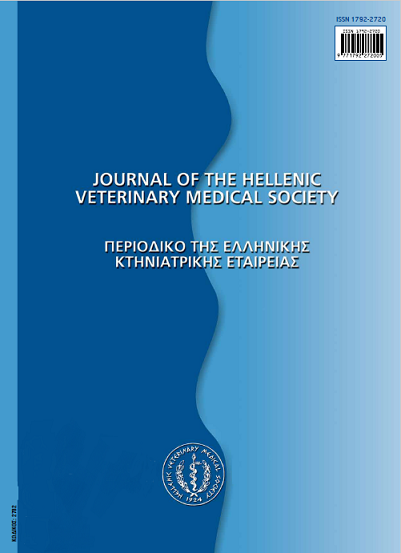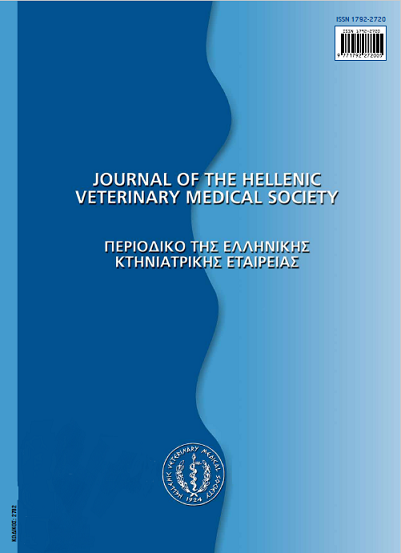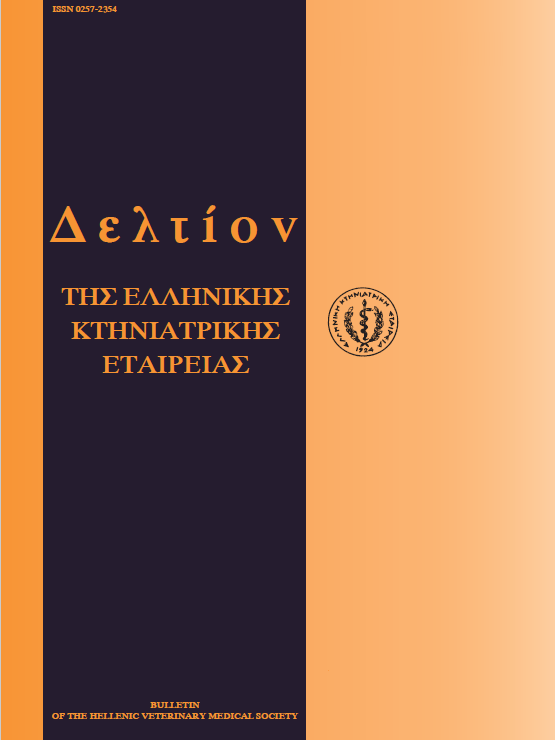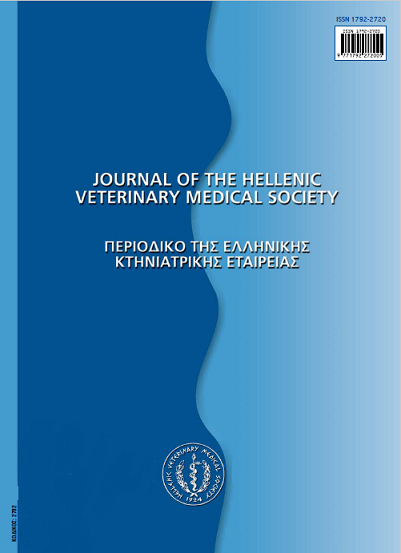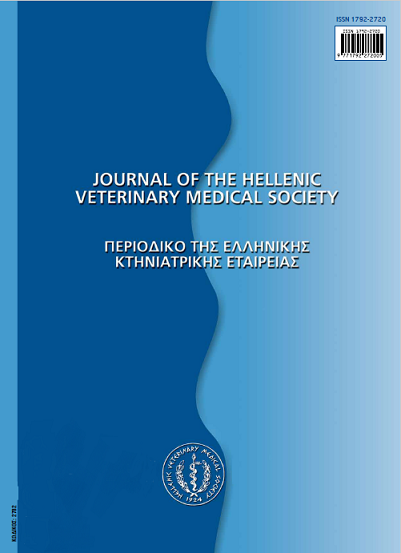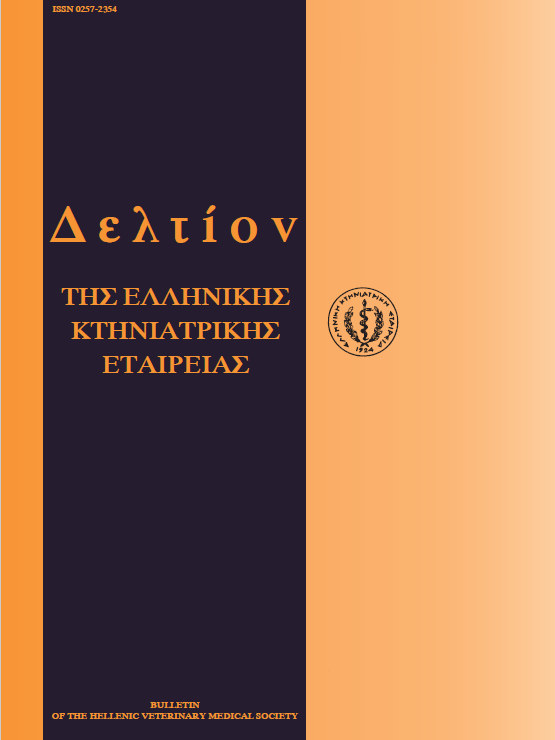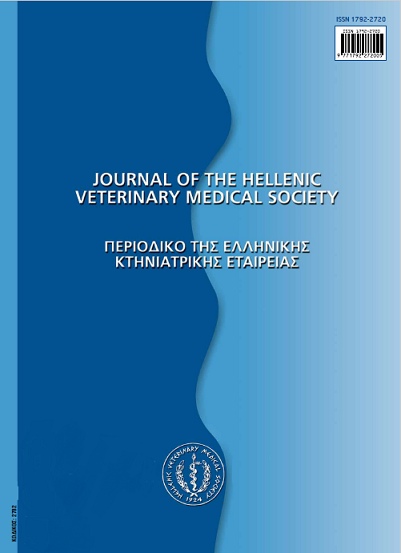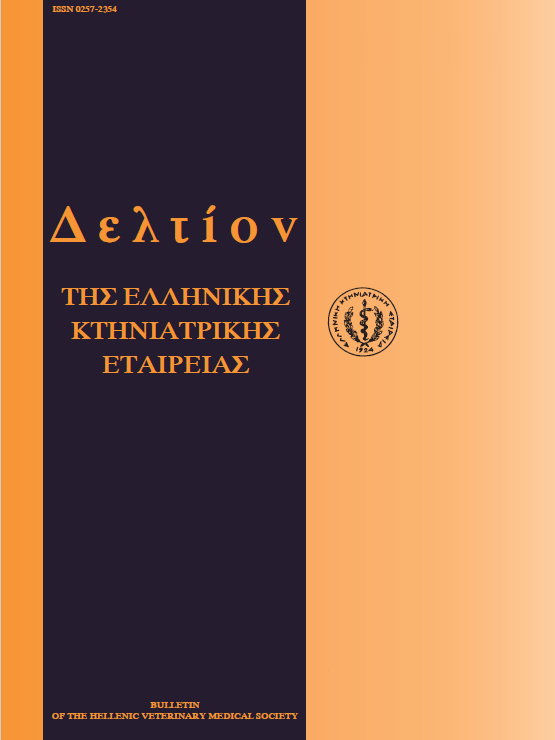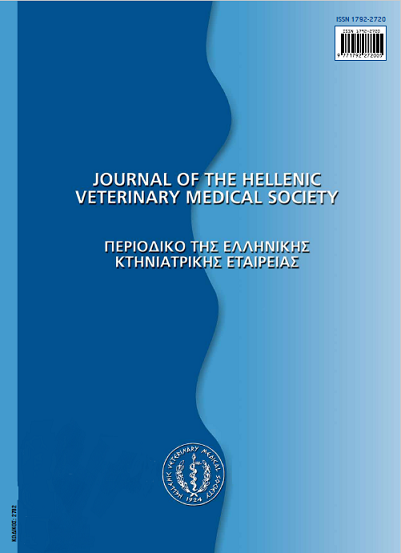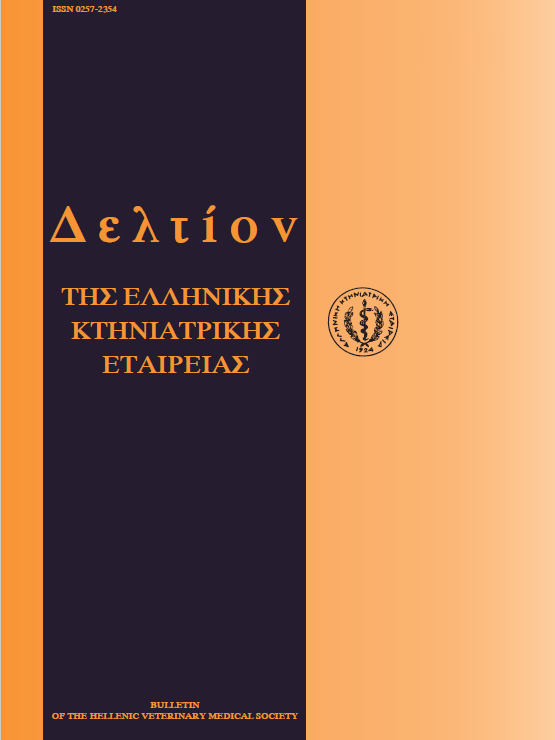Impact of a porcine reproductive and respiratory syndrome inactivated vaccine on the health and semen traits of boars
Аннотация
The aim of this study was to investigate the effects of a commercial European Porcine Reproductive and Respiratory Syndrome (PRRS) - inactivated vaccine on health status, semen characteristics and semen fertilizing capacity in vivo of boars. In a farrow to finish farm that suffered from chronic course of PRRS, 7 donor boars (1.1-2.2 years old) were initially twice vaccinated, with a 4 weeks interval. At the same time, all gilts / sows of the herd were, also, vaccinated. Boars were monitored for abnormal clinical signs 24 h prior to 15 days after each vaccination. Ejaculates were collected 24 h prior, 24 h after and 15 days after each vaccination and the semen characteristics were evaluated. A total of 305 sows were inseminated twice with the collected semen 2 weeks prior up to 6 weeks after the 1st vaccination. No systemic clinical signs and significant differences in semen characteristics, except of sperm viability, were noticed. After the 1st vaccination, sperm viability increased, but this was probably due to the increase of the age of 7 boars during the trial and not due to the vaccination. All semen characteristics were decreased 24h after each vaccination, but they were not lower than the value of accepted criteria semen quality. No change was noticed in sow's fertility parameters, apart from the farrowing rate, that was not, however, of clinical importance. In conclusion, the use of a PRRSV - inactivated vaccine in boars is safe and has not negative effects on health status and their semen characteristics neither on fertilizing capacity in vivo.
Article Details
- Как цитировать
-
PAPATSIROS (Β. ΠΑΠΑΤΣΙΡΟΣ) V. G., ALEXOPOULOS (Κ. ΑΛΕΞΟΠΟΥΛΟΣ) C., BOSCOS (Κ. ΜΠΟΣΚΟΣ) C., & KYRIAKIS (Σ.Κ. ΚΥΡΙΑΚΗΣ) S. C. (2017). Impact of a porcine reproductive and respiratory syndrome inactivated vaccine on the health and semen traits of boars. Journal of the Hellenic Veterinary Medical Society, 62(3), 221–228. https://doi.org/10.12681/jhvms.14853
- Выпуск
- Том 62 № 3 (2011)
- Раздел
- Research Articles
Authors who publish with this journal agree to the following terms:
· Authors retain copyright and grant the journal right of first publication with the work simultaneously licensed under a Creative Commons Attribution Non-Commercial License that allows others to share the work with an acknowledgement of the work's authorship and initial publication in this journal.
· Authors are able to enter into separate, additional contractual arrangements for the non-exclusive distribution of the journal's published version of the work (e.g. post it to an institutional repository or publish it in a book), with an acknowledgement of its initial publication in this journal.
· Authors are permitted and encouraged to post their work online (preferably in institutional repositories or on their website) prior to and during the submission process, as it can lead to productive exchanges, as well as earlier and greater citation of published work.

